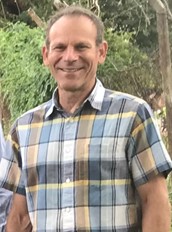
Roland Cooper Postdoctoral Fellowship in Malaria Research in Uganda.
This fellowship, developed by investigators at University of California San Francisco (UCSF) and Stanford University, is designed to advance the career trajectory of promising PhD-level Ugandan scientists. Young scientists in Uganda face major barriers to achieving scientific independence. Many have successfully completed PhD programs and substantially contributed to malaria research, but then lack the mentoring, funding, and opportunities needed to develop as research leaders. This fellowship is designed to help fill this gap by providing dedicated funding, mentoring, and research support during postdoctoral training.
The Roland Cooper Postdoctoral Fellowship in Malaria Research in Uganda will support PhD-level Ugandan scientists working with the Infectious Disease Research Collaboration (IDRC). This fellowship will provide up to $50,000 for postdoctoral training, including salary support; research expenses; travel to work directly with an overseas mentor, if appropriate for the project; presenting at conferences; protected time for mentored writing of manuscripts and/or grant applications; and guidance on transition to scientific independence.
Roland Cooper was a vital part of IDRC research programs in Uganda from soon after he joined the faculty of Dominican University in 2011 to his untimely passing in 2024. Roland’s expertise in the biology of malaria parasites and scientific creativity were essential to the building of programs that now entail culturing and characterizing freshly isolated malaria parasites at three laboratories in Uganda, offering key insights into malaria drug susceptibility and resistance in the country. Further, Roland was a fantastic teacher, mentor, colleague, and friend, inspiring many Ugandan trainees to pursue careers in malaria research. As a testament to Roland’s contributions, this postdoctoral fellowship is named in his honor.
INFORMATION FOR PROSPECTIVE DONORS:
In order to create a base to make this award sustainable, we request your financial support. UCSF is hosting the fund and periodically transferring the funds to IDRC, which enables donations to be tax deductible in the US.
INFORMATION FOR PROSPECTIVE APPLICANTS:
Description of award:
- Up to $50,000 to spend over 12-24 months
Eligibility:
- PhD completed within the last 10 years or, if currently enrolled in a PhD program, anticipated completion within 1 year
- Ugandan citizenship
- Current affiliation with the Infectious Disease Research Collaboration (IDRC) or willingness to become affiliated
- Proven track record in malaria research and in a position to lead independent work
- Trainees are not eligible if already a Principal Investigator on a funded grant.
Requirements for application:
- 3-page proposal including detailed plans for the award period, justification for choice of mentor(s), and description of how this period will benefit the trainee’s career
- NIH-style biosketch (further instructions at this link)
- Detailed one page budget
- Letter of support from primary mentor(s)
- Additional reference letters are optional
Requirements after acceptance:
- Funds will be available for 2 years
- Provide annual updates on manuscripts, grant application, and other scientific activities for 5 years
Apply by sending your materials to fellowship@idrc-uganda.org by May 1, 2026.


2024: Dr. Abel Kakuru
Dr. Abel Kakuru is an epidemiologist with a PhD in infectious and tropical diseases from the London School of Hygiene and Tropical Medicine. He also holds a Master of Science degree in epidemiology from the same university, as well as a Bachelor of Medicine and Surgery from Makerere University. Since 2007, he has worked in clinical research with the Infectious Diseases Research Collaboration, leading several successful clinical trials focused on preventing malaria in children and pregnant women. He is currently working as an investigator on clinical trials that evaluate dihydroartemisinin-piperaquine for malaria prevention in children and pregnant women. He will use this fellowship award to develop his skills and improve local capacity to conduct rigorous clinical trials evaluating interventions to reduce malaria among pregnant women and young children. He also plans to apply for funding to support a clinical trial evaluating interventions for malaria prevention in children with sickle cell disease and establish malaria surveillance in pregnant women in Uganda.

